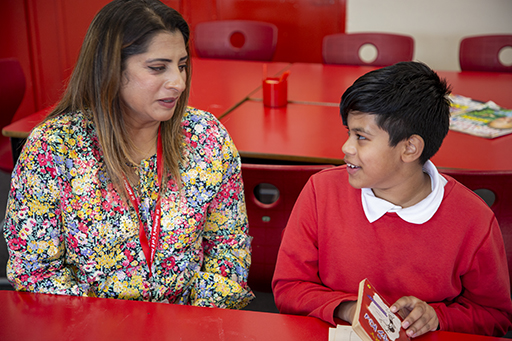6.2 Developing your knowledge of children as readers
As a Reading Teacher, you will recognise that your own reading habits and preferences evolve and change over time and differ from those of your colleagues, family and friends; therefore, it stands to reason that in your class, ‘no two readers are the same’ (Cliff Hodges, 2010). Reading practices of some sort or other occur in every family home in almost every society – but in some homes, those reading practices are closely matched to school-type reading, while in other families, reading practices are very different. It is crucial that you do not view different as deficit.

As you look beyond book-bound conceptualisations of reading, you might find you are surprised by the wealth and breadth of the texts children engage with. As a Reading Teacher you will recognise children’s unique journeys as readers and cultivate those journeys so that every child’s reading repertoire grows in depth and breadth.
It is also important as a Reading Teacher to make your own reader identity visible to children. By modelling your reading and talking about your own out-of-school reader preferences with children, you legitimise those broader reading practices. When you share your enjoyment of travel brochures, car magazines, a particular genre of literature, or cookery websites, for example, you will help children to recognise and nurture their own reader identities. Over time, children will be encouraged to discuss their own reading habits, which in turn, enhances your knowledge of their reading tastes and choices. Keeping a note of your conversations and observations will capture subtle changes in children’s reading practices, motivation, and attitudes to reading.
As a Reading Teacher you will also constantly reflect upon your own reading practices and habits and consider the possible consequences for your classroom practice. Using this alongside the range of tools you read about in Session 4, Section 5, such as reading rivers, reading treasure hunts, reading conferences, surveys, book blanket activities and parent conversations can help you get to know children as readers.
